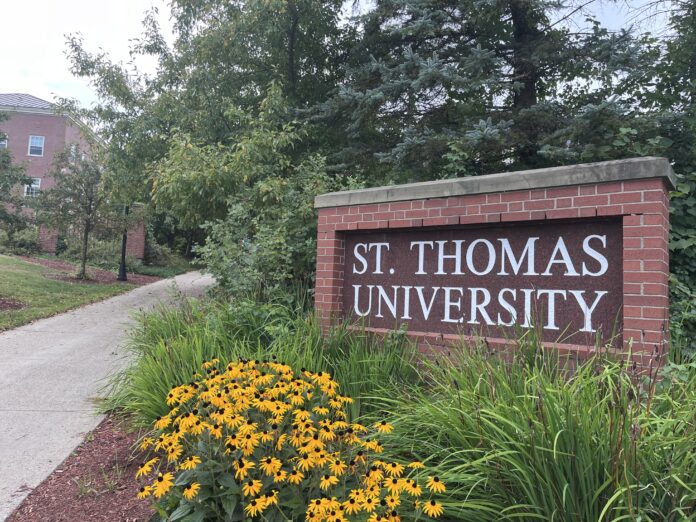As St. Thomas University enters a new academic year, students see yet another noticeable increase in tuition for the Bachelor of Arts program.
STU students saw a four per cent increase in tuition costs for the university’s Bachelor of Arts program for both domestic and international students. Tuition costs have increased by approximately 18.1 per cent since the 2020-21 academic year.
Pearl A. Gyamfi is a fourth-year international student at STU and is the vice president of administration for the university’s student union.
“It’s quite alarming,” said Gyamfi. “The university would obviously raise tuition and other costs based on what’s happening in the world today, and they have to do what they have to do, I guess.”
STU spokesperson, Jeffrey Carleton, says that STU’s need to balance and maintain the quality of education and ensure the future sustainability of the university is the primary factor for these increases.
According to the university’s budget report for the 2024-25 academic year, STU has the fourth lowest domestic tuition fees and the sixth lowest international tuition fees amongst universities that offer a bachelor of arts program in the maritimes. This is labelled by Carleton as putting STU in a ‘competitive’ position among universities in the region.
Carleton understands the concerns that students may have about these consistent increases, but considering the university ran a deficit last year, he feels as though the four per cent increase is fair.
“We thought that the tuition increase this year was reasonable given the circumstances,” said Carleton. “I understand why it’s labelled as unfair, I don’t think that comment is fulsome given what’s in the budget summary and the cost factors we’re facing.”
Carleton emphasized the transparency of the university’s finances through resources that are readily available to students, such as the annual budget summary that gets published onto STU’s website.
“I’m not convinced that there’s any other organization in society that provides that level of detail on the spending,” said Carleton.
Gyamfi also mentions a high level of transparency is needed for students if tuition continues to increase. She urges student discussion in the hopes of creating a wave of change.
“If we’re going to be paying for these fees, we need to make sure that we’re getting the most for our money,” said Gyamfi. “We can together make change, because the financial burden on the university is something that we’re all facing, especially with the tuition increase.”
Both Gyamfi and Carleton encouraged students to attend the university’s budget town hall, an annual meeting that is viewed by both as a pivotal way for students to voice their concerns. This public meeting normally takes place during the winter semester.
“I’d suggest students should pay attention to the budget development process, read the documents, become involved, attend the town hall, understand where their tuition dollars are going and how it’s used, ask questions, look for answers and things that concern you,” said Carleton.

